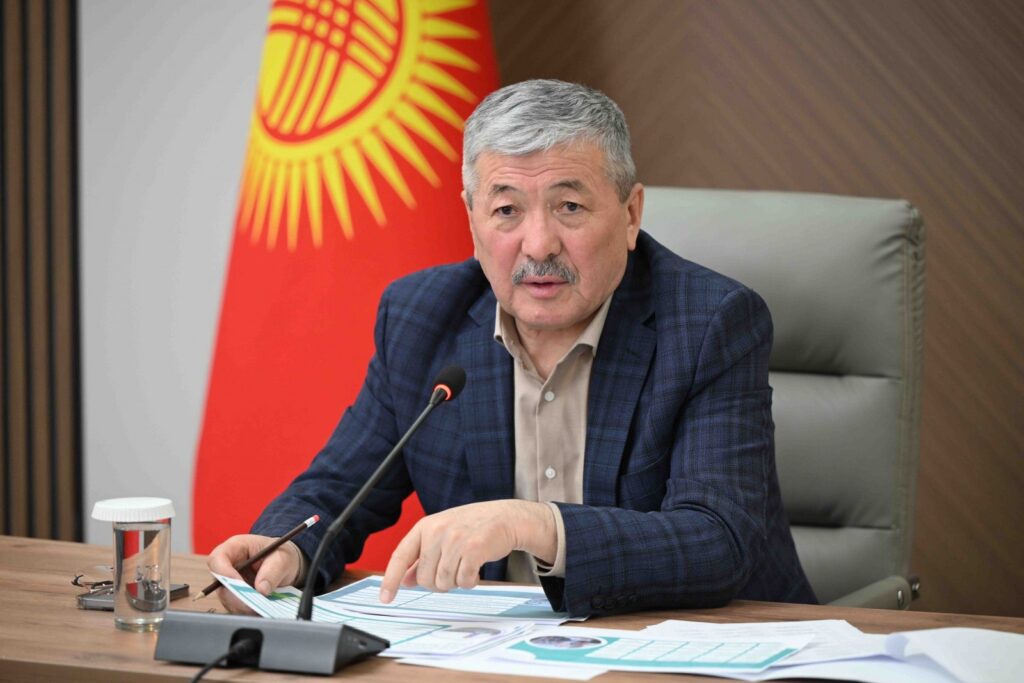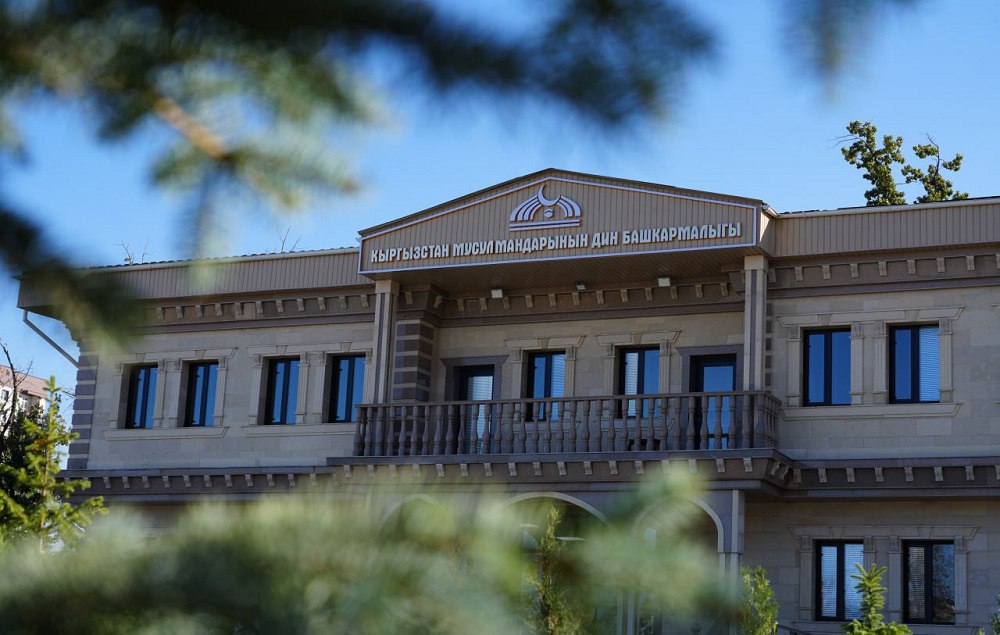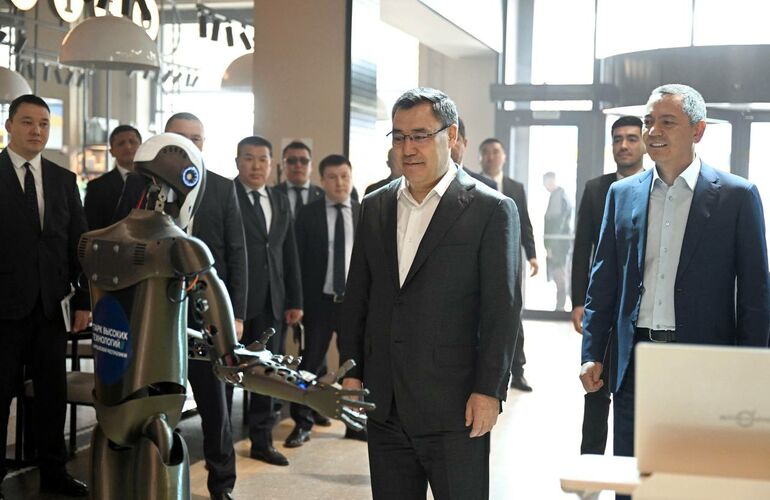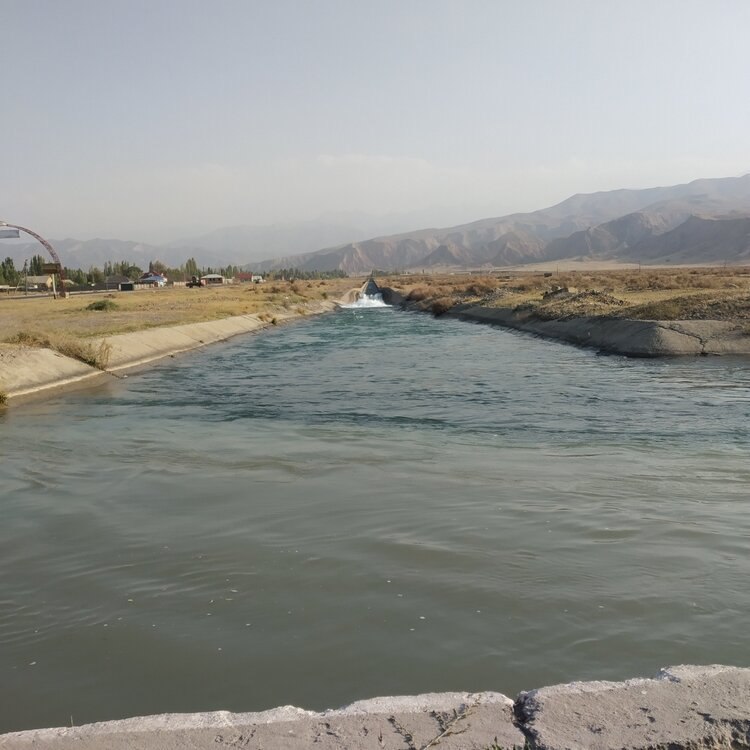BISHKEK (TCA) — More than 150 representatives from 80 Chinese companies took part in the Kyrgyzstan-China Business Forum held in Bishkek on June 13 as part of the state visit of Chinese President Xi Jinping to Kyrgyzstan.
“After President Xi Jinping proposed the Silk Road Economic Belt concept, Kyrgyz-Chinese relations have reached a new level, and there is active interaction both at the Government level and between the business circles of the two countries. In this regard, the holding of the Kyrgyz-Chinese business forum plays a key role in expanding cooperation between our countries in trade and investment,” First Deputy Prime Minister of Kyrgyzstan Kubatbek Boronov said opening the forum.
Investment
Foreign direct investment from China amounted to more than $338 million in 2018. In recent years, the most attractive sectors for Chinese investors have been mining (54.3%), manufacturing (23%), and professional, scientific and technical activities (23%), Boronov said, adding that these figures do not reflect the full potential of bilateral cooperation.
He told the guests about favorable investment conditions in Kyrgyzstan that can positively affect production costs, such as the liberal tax regime, low electricity tariffs, and skilled labor force.
Kyrgyzstan attaches great importance to FDI introducing innovative technologies and investors’ experience, he said.
The Investment Promotion and Protection Agency of Kyrgyzstan is supporting several projects implemented by Chinese investors. Enterprises to be opened soon include a cement plant in the Jalal-Abad province in the south of the country, an industrial park for processing of agricultural products, and a factory for the production of yarn and gloves, Boronov said.
In Kyrgyzstan, Chinese companies invest mainly in the development and mining of minerals, production of building materials, oil refining, transport and communications, and agriculture, as well as manufacturing, trade, repair of cars and household goods. China’s interest in investing in professional, scientific, and technical activities is growing.
Trade between Kyrgyzstan and China amounted to $2 billion in 2018, an increase of 25% compared to the previous year, said advisor on trade and economic issues of the Chinese Embassy, Li Yue.
“Our investors have created many jobs. There are projects in such areas as transport, power generation, agriculture and healthcare, reconstruction of the road network, the Datka-Kemin electricity transmission line, and the North-South motor road,” he said.
In April, the presidents of the two countries agreed to align China’s One Belt, One Road project and Kyrgyzstan’s national development strategy until 2040.
Forum results
As part of the Kyrgyzstan-China business forum, 24 documents worth more than $7 billion were signed.
The parties agreed on the promotion and modernization of the Iskra Asia Kyrgyz-Chinese industrial park of free trade cooperation. The agreement was signed by the Investment Promotion and Protection Agency of Kyrgyzstan (IPPA), the FTZCOC Central Asian Logistics Center and Iskra Asia OJSC.
The IPPA, Daren Group, Lingbao Gold Group and Full Gold Mining will create the Central Asian Precious Metals Exchange in Kyrgyzstan as well as the One Belt, One Road Development Fund. The parties also agreed to construct a gold processing plant with integrated use of environmental circulation.
With the support of the Kyrgyz side, China intends to build two modern agro-industrial complexes, a brick plant, and an electric vehicle assembly plant in Kyrgyzstan.
Another interesting area of partnership will be the creation of a Central Asian trading exchange and a blockchain exchange.
The Investment Promotion and Protection Agency signed a cooperation agreement with the Tokmok Business Oil Refinery LLC, a subsidiary of Xinjiang International Business Company, on the modernization of the Tokmok refinery.
It is worth noting that the five largest signed agreements are framework documents and do not oblige companies and organizations that have signed them to anything.
Agriculture
During the business forum, China and Kyrgyzstan signed four documents in agriculture, Minister of Agriculture and Food Industry of Kyrgyzstan Erkinbek Choduev said, adding that this is just the beginning.
The first agreement is on the construction of a $260 million plant for the organic fertilizer production in the Nookat district of the Osh province. The Memorandum on Digitalization of Agriculture provides for $50 million investment. The next document is on the creation of a $40 million logistics center. It is also planned to build a $60 million dairy plant in the Suzak district in southern Kyrgyzstan.
These projects, totaling about $400 million, will have a significant impact on the development of the country’s economy, Choduev said.
Trade in agriculture between Kyrgyzstan and China now amounts to $42 million, he added.
Following Xi Jinping’s state visit to Kyrgyzstan, 19 agreements were signed, and four of them were on the export of dairy products, honey, sweet cherries and wheat flour from Kyrgyzstan to China.
The agriculture ministries of the two countries approved a cooperation plan for 2019-2021.
It plans to build an agro-industrial park with modern refrigeration equipment, food processing enterprises, with the aim of increasing exports of Kyrgyz agricultural products to China.
In the near future it is planned to sign agreements on expanding the list of exported products to China. “We also plan to export apricots, grapes, beans, flour and powdered milk,” Choduyev said.
The Chinese side expressed interest in importing apples, corn, prunes, sugar and other agricultural products from Kyrgyzstan.
The Agriculture Ministry signed a memorandum with a Chinese company on the construction of a Kyrgyz-Chinese demonstration park of modern agricultural industry for $260 million.
The implementation of these agreements will contribute to the development of the agro-industrial complex of Kyrgyzstan and will promote access of Kyrgyz agricultural products to the Chinese market.
Debt
China is not only among the main trading partners and investors of Kyrgyzstan, but also its main creditor.
Kyrgyzstan’s foreign debt is about $4.4 billion, of which $3.8 billion is the external debt. The largest creditor is China, which allocated more than $1.7 billion through its Export-Import Bank.
Kyrgyzstan took Chinese loans for the rehabilitation of its road infrastructure, including the Bishkek—Osh, Osh—Sary-Tash—Irkeshtam and Bishkek—Naryn—Torugart strategic highways, Datka—Kemin power transmission line, and reconstruction of the Bishkek Thermal Power Plant.
The peak of debt payments will be in the 2020s, the Kyrgyz Government said.









